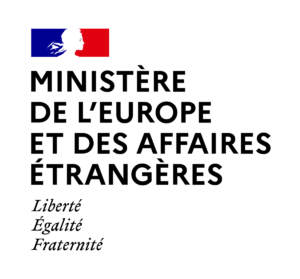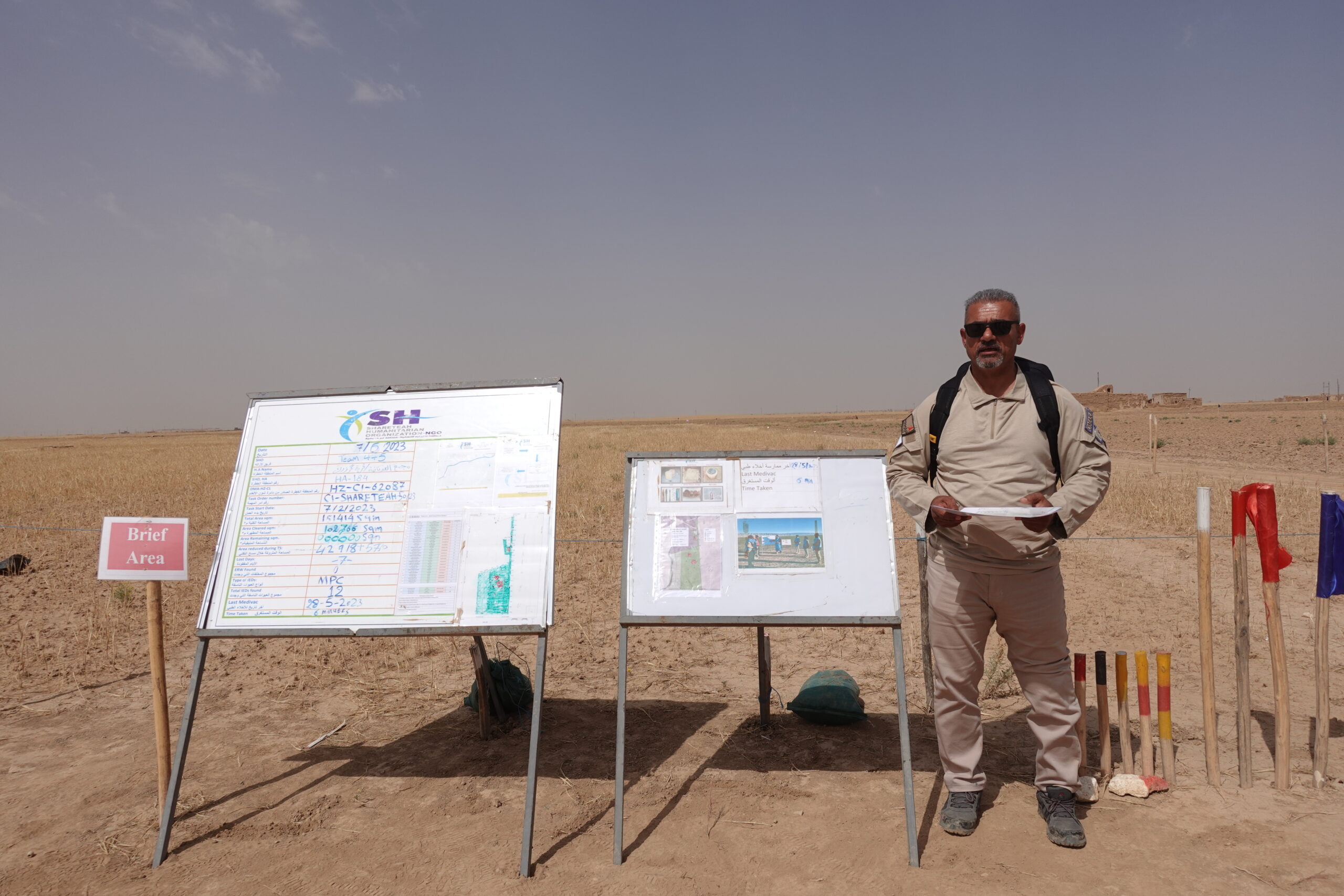Discover the Safer Sinjar project in Iraq!
The Safer Sinjar program is currently in its 12th month of implementation thanks to the continued support of the Crisis and Support Centre of the French Ministry for Europe and Foreign Affairs.
Since October 2021, HAMAP-Humanitaire and SHO teams have been working together to make Sinjar safer, for the benefit of the remained, returned and those still displaced as a result of conflicts. Since August 2022, an important milestone has been reached with the start of demining activities. In one year, three fields have been completely cleared of their explosive contamination. Our two mixed teams first cleaned up the cemetery in the village of Al-Mawalih, and continued by cleaning up a nearby agricultural area. The third plot of land was finalized on 7 June and consisted of farmland and a secondary road near the hardly impacted village of Adnaniyah.
The operations were stopped for a few weeks to conduct training and allow the teams to develop their skills. The content of these was developed by the technical advisors of HAMAP-Humanitaire in collaboration with our local partner SHO, during the previous months. The development of training is part of our partner’s capacity-strengthening process. This joint work aims, on the one hand, to support SHO in the capitalization and enhancement of its expertise, and on the other hand to develop the necessary support for team training. For the resumption of operations on 25 July, we selected a contaminated land near a middle school in the small town of Qabusiya, based on our assessment of priorities.
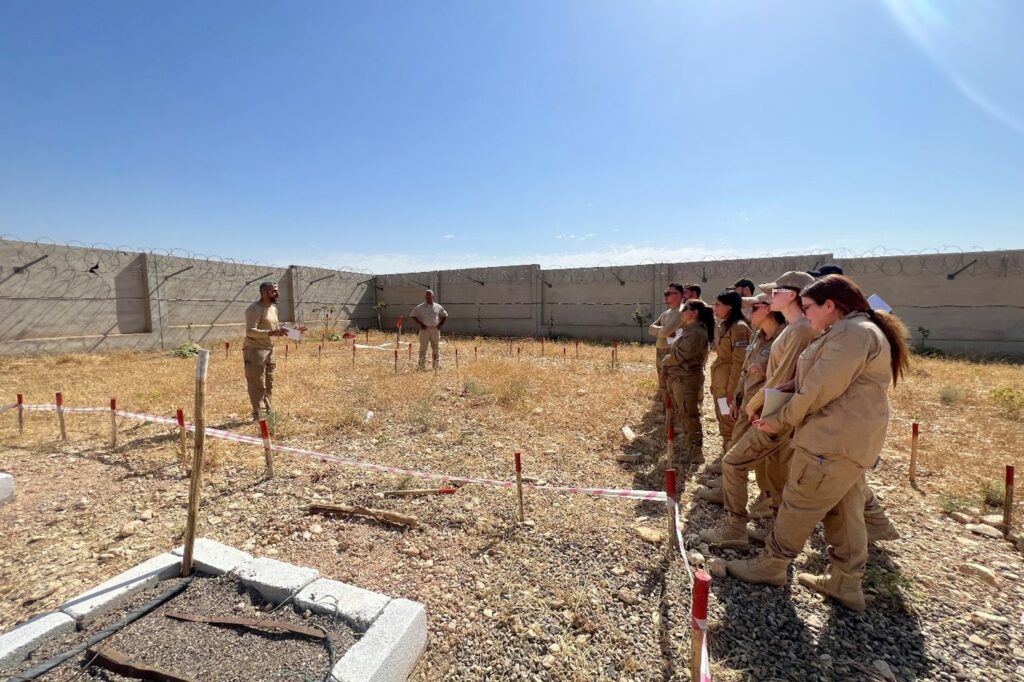
Practical exercise during the Senior EOD Searcher training with use of inert replicas (July 2023)
To do this, we assess the impact of contamination on communities, including in terms of impediment to the use of basic services, through a points system. Qabusiya is located 8 km south of the city of Sinjar. Before 2014, Qabusiya had about 7,000 inhabitants (1,300 families), today almost half of the houses are in ruins and only about 20% of the population has returned. Returns continue, but at a very slow pace, of about 2 to 3 families per month.
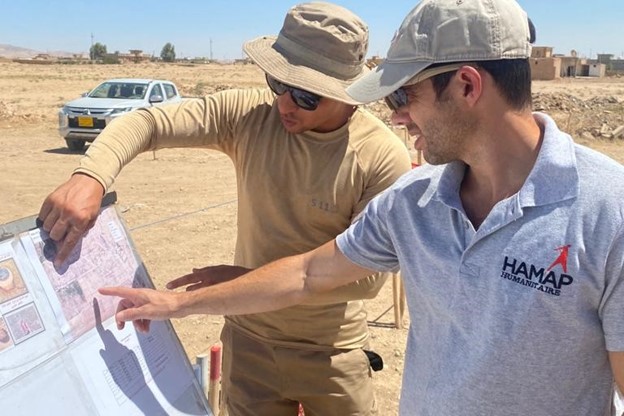
The technical advisor of HAMAP-Humanitaire and one of the SHO demining team leaders at the administrative site of the Qabusiya depollution site (August 2023)
Despite the extreme heat of the Iraqi summer, the women and men who make up the demining teams continue the clean-up work on the ground. As long as the temperature does not exceed 45 degrees Celsius, they tirelessly continue the meticulous work of detection, under the benevolent gaze of the team medics. This requires teams to deploy before dawn to start their working day when temperatures are still relatively mild. Almost every morning, villagers living next door bring them breakfast snacks in gratitude for their valuable life-saving work. The land at the northern end of Qabusiya city is unused farmland due to explosions that occurred during their burning in 2017 (without causing any casualties). Nearby, two children from the town were killed while handling a remnant of war last year.
Northern Qabusiya was a forward base of Daesh in 2015 and 2016, in the fighting against Kurdish forces supported by the international coalition. After being liberated for the first time in May 2016 by Kurdish forces, Qabusiya once again became a moving front, before being definitively liberated on 25 May 2017 by Iraqi forces.
The college, in the immediate vicinity of the field, is no longer used due to damage due to explosions and suspicion of explosive contamination. It has a capacity of more than 300 students. Currently, there are about 70 middle-school children in Qabusiya attending school in the city of Sinjar. This example reflects a general problem in Sinjar district: many school buildings have been destroyed, and those in use are therefore overloaded. Thus, in Qabusiya, it is the primary school that is currently overcrowded. In the coming weeks, our teams will seek to confirm or deny the presence of contamination, and define its nature. If the school is trapped, a so-called “building research” intervention will be necessary. This requires the implementation of special procedures for which we plan to develop and conduct this training during the year 2024.
In parallel, the organizational capacity building of our Iraqi partner is being implemented. This took the form of a complete reassessment of the quality system, which made it possible to measure the progress made since 2019 but also the remaining gaps. Through audits, training and daily monitoring, Localised Consulting’s consultants support our partner towards a always more efficient management of the organization. Every day, awareness-raising teams ensure that people living near sites of contamination, and demining sites, know and adopt safe behaviors in the presence of explosives. Through these awareness-raising and community outreach activities, they identify new contaminated areas through the inhabitants (this is called non-technical survey).
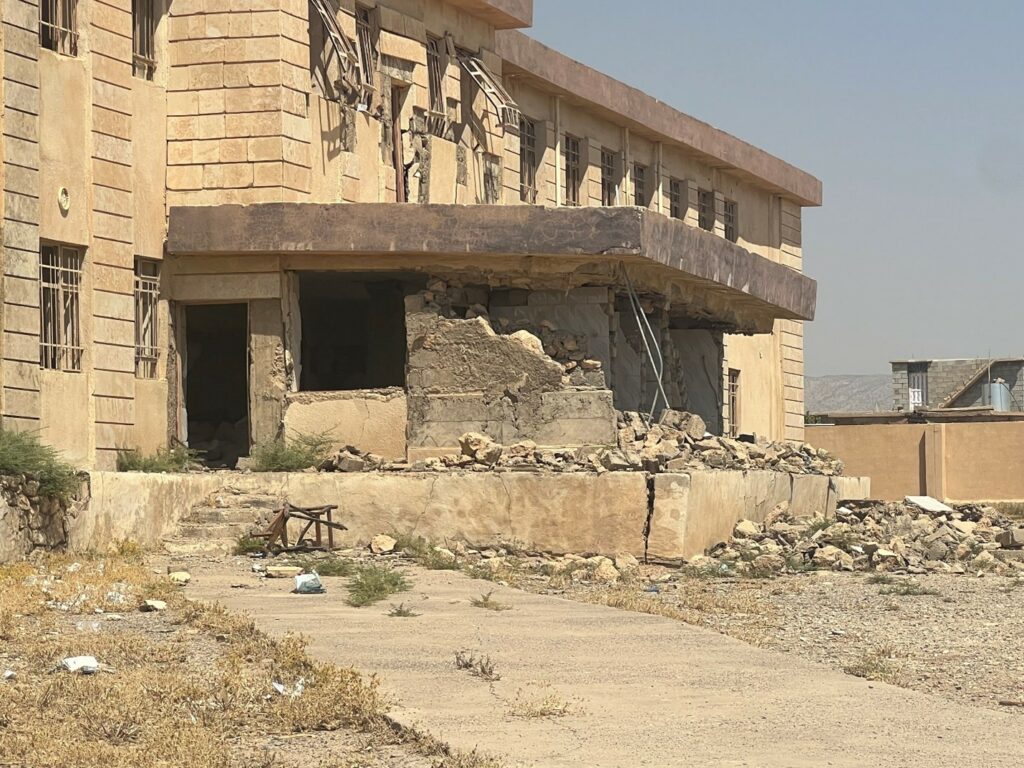
Qabusiya College photos of the damage caused by the conflict (August 2023)
Testimonies and key data are compiled and transmitted to national mine action authorities for inclusion in their databases.
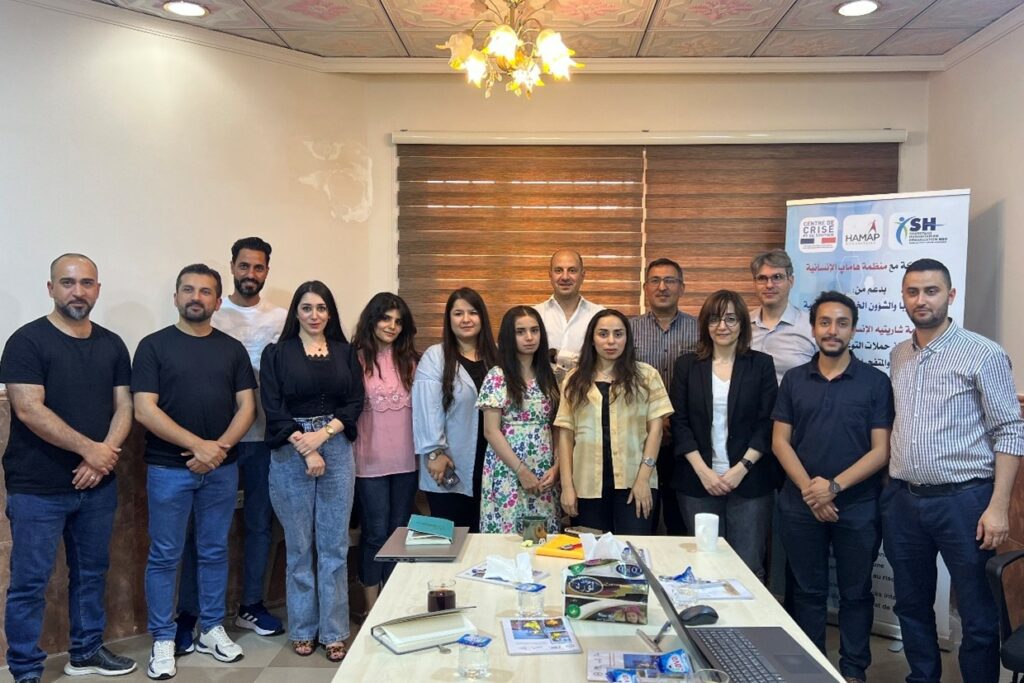
Organizational Capacity Assessment Session with Localised Consulting (May 2023)
To date, and since the beginning of the Safer Sinjar program, HAMAP-Humanitaire and SHO have :
- raised awareness among 12,479 Sinjar inhabitants ;
- cleared 307,067 m² of land ;
- neutralized 21 explosive devices.
But much remains to be done in Sinjar, currently more than 2 million m² of contaminated land has already been identified by the awareness raising and non-technical survey team. The pace of clearance is accelerating as teams gain expertise and confidence, while the cost decreases since the main investments have already been carried out. However explosive clearance is a long process, especially in a country as hardly impacted as Iraq. Achieving an Iraq free of mines, will require continuous efforts by devoted people and organizations over the span of years. This long-term prospect is why capacity building and localization is essential in Mine Action.
This project is funded by the Centre de Crise et de Soutien of the French Ministry of Europe and Foreign Affairs.
